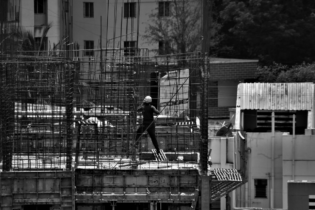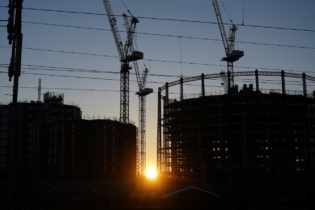It wasn’t that long ago, just after the 1994 elections to be precise, when it seemed almost every other South African wanted to became a public servant. For the vast majority, this was not simply because there was a job on offer but because there was a very real sense that becoming part of the newly democratic public service, in whatever capacity was the right thing to do. It was not about the self-interested or political party-centred occupation of positions of power or about using those positions to accumulate personal and family wealth.
Rather, there was the chance to replace an illegitimate and unrepresentative public sector by practically re-casting what it means to be a public servant: to place the common good over and above private interest in both collective work and individual action; to serve with the kind of humility and purpose that comes by being entrusted with working for and/or representing the public interest; and, to imbibe, the foundational ethical principles and work values of the democratic mandate that gives the public sector its legitimacy. Cumulatively, to be one of those metaphorical flowers that would sprout up on historically stony ground and overwhelm the existing and potential thorns of selfishness, arrogance, indolence, greed and corruption. For a brief period it looked like those flowers were growing. Thousands of committed, honest and hard-working people flooded into the public sector, willingly embracing the Herculean task of revolutionising the institutional character and practical work-face of the public service. But just as had been the case with so many democratic revolutions before, there was the simultaneous growth of big and powerful thorns, whose old and new roots were quickly sunk into the body politic. Even if most of us did not recognise or simply did not want to believe it was happening, it was public servants at the highest levels that incubated and then covered over South Africa’s biggest and most expensive ‘public’ project at the time, the arms deal. As it turned out, the arms deal was a thorn lover’s paradise, characterised by an attitude and approach that militated against everything that the new public sector and its servicing of the people was supposed to be about. No matter all the post-hoc rationalisations and excuses or over wrought slaps on the wrist, a green light had been given. In direct proportion, a bed of thorns began to grow across the depth and breadth of the public sector while the flowers gradually wilted, batho pele rhetoric notwithstanding. Two ‘early’ examples are representative. In an attempt to defend rising corruption within Mpumalanga newly appointed (in 1999) Premier of Mpumalanga, Ndaweni Mahlangu unashamedly stated that it was okay for politicians to lie. While this set off a justified firestorm of outrage, the fact is that Mahlangu and associates got away with it precisely because, like one of those guests at a dinner party who upsets everyone by telling the host that the food is horrible, he was simply giving verbal affirmation to the reality. Similarly, in 2006 when the ANC’s Head of the Presidency Smuts Ngonyama declared, in response to rising criticism of his own enrichment from the partial (BEE) privatisation of Telkom, that “we did not struggle to be poor”, he was merely confirming that it was now acceptable for public servants (or those closely connected) to sell off public sector property for personal gain. By the late 2000s, the bed had turned into a fully fledged forest. Not content with what were already very decent wage packages financed by the public purse, high-ranking politicians and public sector officialdom at every level were awarding themselves with super-salaries and a huge range of benefit sweeteners. Indeed, South Africa has to be one of the only countries in the world where the majority of this public sector ‘cadre’ are made millionaires every year and that’s not counting what many of them make on the side.Even in small towns like Knysna, the annual salary of the municipal manager now comes in at a cool R1,3 million while his counterpart in the neighbouring Bitou municipality has to make do with a measly R1,2 million. Meanwhile, the top management of parastatals – yes, the ones that are now driving the ‘people-centred’ infrastructural programme – are making in one year what it would take an ordinary public sector worker a lifetime to earn.
Things are now so bad in departments like Public Works that its Minister feels it necessary to inform the public that, “we have people looting and even saying ‘it’s our time to eat’ … they act as if they own the department”. Even in the military, as the South African Security Forces Union points out, some commanders, “spend more time running their personal businesses” than they spend on the job while “critical health services have been outsourced to private hospitals which are run by current and former Generals …” When the public asks too many questions about what their public servants are up to, the arrogance surfaces with a vengeance. We are thus told by the likes of Defence Ministerial spokesman Ndivhuwo Mabya that, “we do not have to explain to anyone the decisions which we take … we don’t owe anyone answers.” Throw in security-intelligence officials running amok behind the smokescreens of ‘national interest’ and ‘classified information’, transport authorities giving the middle finger to actual public transport or the police brass making a mockery of their own code of conduct to “act with integrity in rendering an effective service of a high standard which is accessible to everybody”, and it isn’t hard to figure out that there is precious little of the ‘public’ left in most of our public service. At the end of his recent Freedom Day address President Zuma implored South Africans to, “put the country first in everything we do …” Besides the fact that he should have said ‘the people’, who after all are the ones that make up ‘the country’, our public sector numero uno would do well to listen to his own advice. Better yet, the President and all those who are supposed to serve the public should ask themselves the questions posed in Pete Seeger’s famous 1960s anti-war song:Where have all the flowers gone?
Long time passing
Where have all the flowers gone?
Long time ago
…When will we ever learn? Source: allAfrica.com






